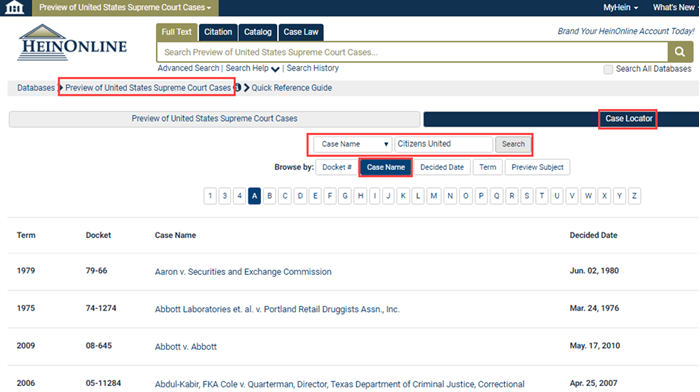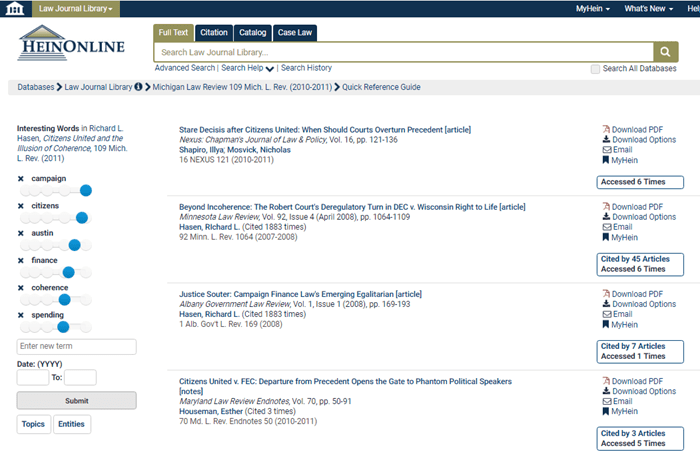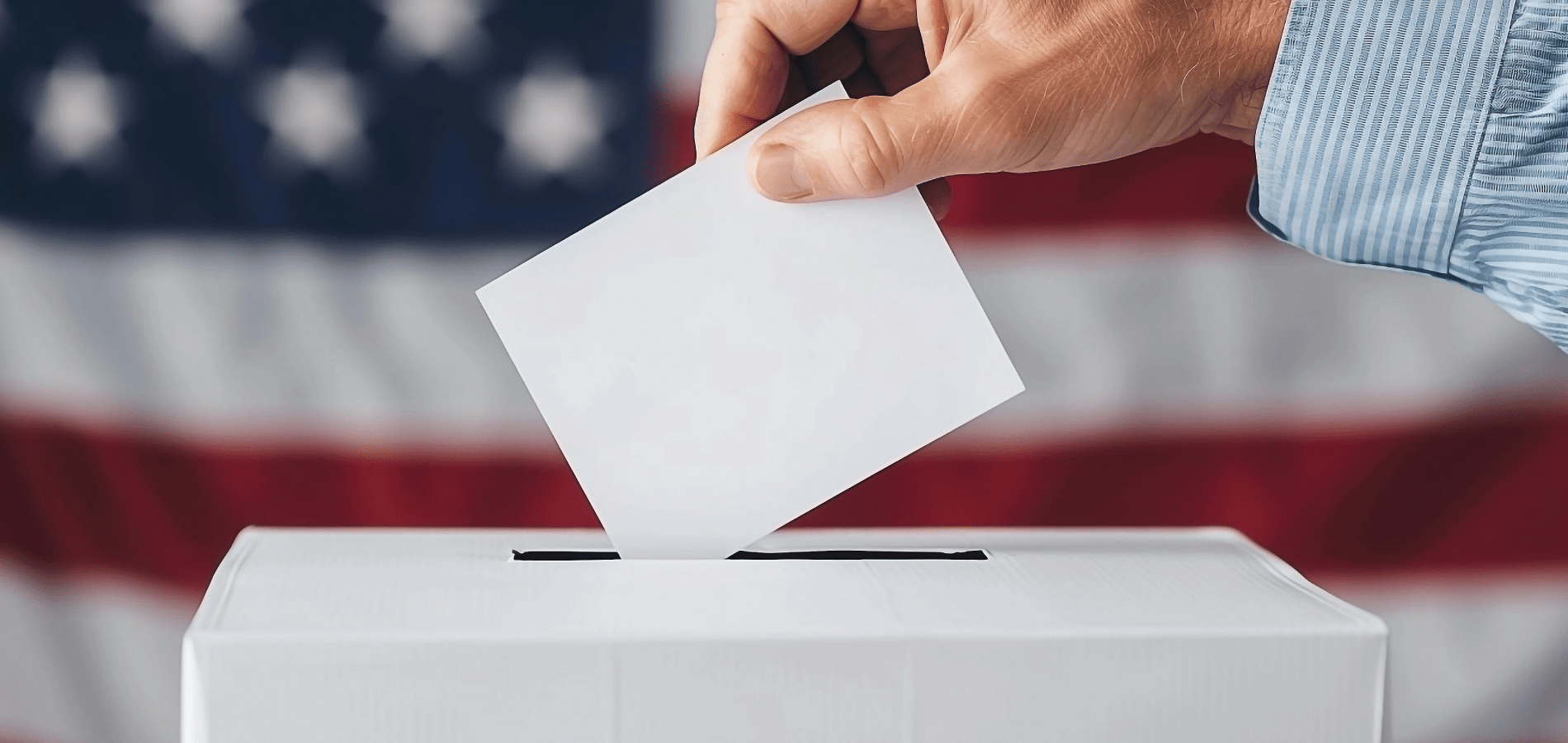Money and politics have strolled hand-in-hand since the founding of the United States, when wealthy, well-connected candidates financed their own political campaigns and were essentially the only people who ran for office. In fact, George Washington spent about $8,000 in today’s currency on alcohol to “treat” voters on election day.
Andrew Jackson was the first presidential candidate who didn’t come from a wealthy background. He ran for office for the second time in 1828 and became the first organized campaigner. While he didn’t seek financial support, he was an early practitioner of rewarding political loyalists with the only thing some find more valuable than money: power, in the form of federal positions.
Buying votes one way or another has always been a political practice, but arguably never so much as since Citizens United v. Federal Election Committee (558 U.S. 310) was decided by the United States Supreme Court.
Facts of Citizens United v. FEC
A conservative nonprofit organization called Citizens United, which had a $12 million budget and was partially funded by for-profit organizations, created a documentary which criticized Hillary Clinton and aimed to air the film shortly before the 2008 Democratic primary election. Federal law at that time prevented any corporation from making an “electioneering communication” reaching more than 50,000 people in the electorate within 30 days of a primary or 60 days of a general election. This law resulted from the 2002 Bipartisan Campaign Reform Act, commonly known as the “McCain-Feingold Act” or BCRA.
The Court ultimately found that these provisions from the BRCA conflicted with the First Amendment of the United States Constitution. The decision generated intense controversy: while some hailed the decision as a resounding victory for the principle of freedom of speech, others criticized the impact on campaign finance law. President Barack Obama stated that the decision would “open the floodgates for special interests to spend without limits in our elections.”
Preview of United States Supreme Court Cases, published by the American Bar Association and available in HeinOnline, is an excellent resource for obtaining quick summaries of issues presented in Supreme Court cases. Enter the database, select the Case Locator option, choose Case Name from the drop-down menu, and enter Citizens United.

From the case summary, click the Preview citation. The issues of the case are presented in the resulting article:
Citizens United asked whether or not “the McCain-Feingold provision barring corporate-funded broadcasts that mention a federal candidate shortly before an election apply to corporate-funded broadcasts offered through a cable television video-on-demand service.” It further questioned if the “McCain-Feingold provisions requiring disclosure by funders of broadcast advertising that mentions a federal candidate shortly before an election unconstitutional when the advertising reasonably might be interpreted as something other than an unambiguous appeal to vote for or against a candidate?”
Impact of This Case
In short, the ruling in favor of Citizens United stated that there is no limit on what corporations and labor unions can spend on convincing people to vote for or against a candidate. However, it is still illegal for companies and labor unions to give money directly to candidates for federal office.
A major effect of the Citizens United decision is the birth of “Super PACs,” or a type of independent political action committee which may raise unlimited sums of money from corporations, unions, and individuals. Super PACs are not permitted to contribute or coordinate directly with parties or candidates and must regularly report who their donors are.
The decision in Citizens United was somewhat surprising because it essentially reversed several laws made to protect elections from influence by corporate and union funding:
- Tillman Act (1907)
- Taft-Hartley Act (1947)
- Federal Election Campaign Act (1971)
- Bipartisan Campaign Reform Act (2002)
All Acts listed above are available in the U.S. Statutes at Large database in HeinOnline. Compiled legislative histories of the Federal Election Campaign Act, several of its amendments, and the Bipartisan Campaign Reform Act are available in the U.S. Federal Legislative History Library. This incredible resource contains 2,460 compiled legislative histories as well as the award-winning Sources of Compiled Legislative Histories, which provides a host of information pertaining to the availability of both compiled legislative histories and other relevant materials for hundreds of public laws. This brief video clip shows how to use the Sources database.
Research Scholarship on This Topic
A quick search for the phrases “Citizens United” AND “campaign finance” produces more than 2,000 results in the Law Journal Library. Sort results by Number of Times Cited by Articles to focus on the most influential works first. Unsurprisingly, the top three most-cited articles are published in the University of Pennsylvania Law Review, Michigan Law Review, and Harvard Law Review. These three journals are among the most-cited journals in HeinOnline.
Click on the second result, Citizens United and the Illusion of Coherence by Richard L. Hasen to access the article. To find articles on similar topics, select the More Like This button located above the article image. More Like This locates articles with similar “interesting words” using machine learning and natural language processing technologies. Note that interesting words from the first article selected include campaign, citizens, finance, and spending.

Super PACs spent more than a billion dollars during the 2016 election, according to this Washington Post article. This trend is sure to continue into the 2018 midterm elections and beyond.
For help researching this or any topic in HeinOnline, contact our dedicated support team at (800) 277-6995, email us, or chat with us!



